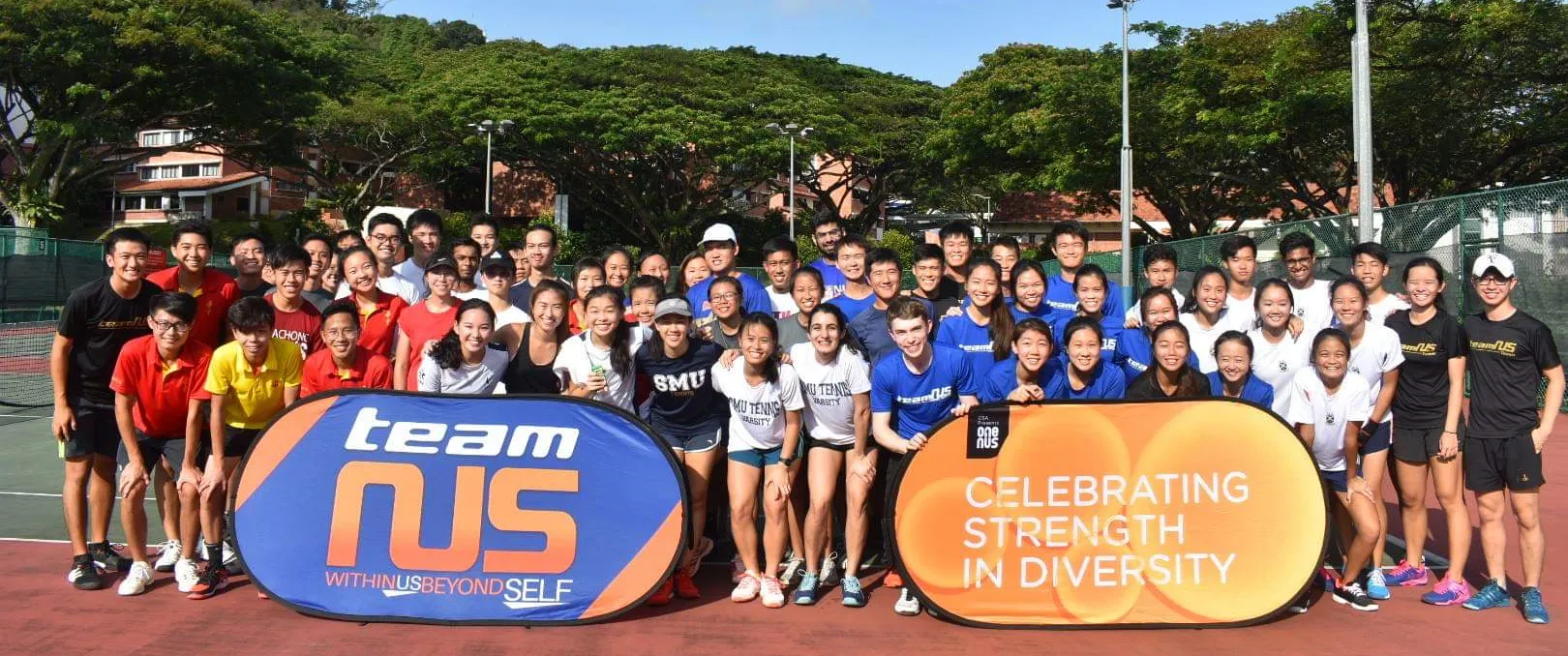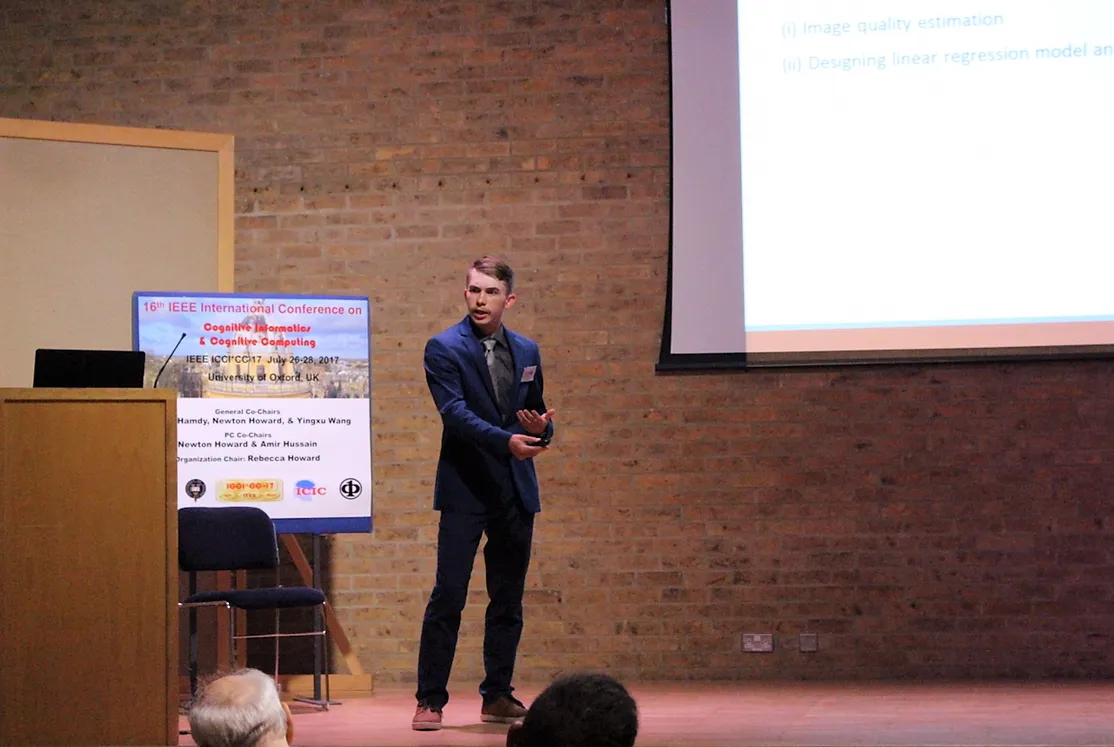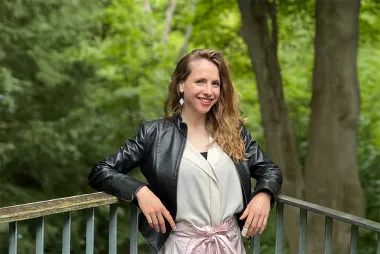“Being a UBC Engineering Student is both a vigorous challenge and a blessing in disguise. Those up to it will surely reap the rewards.”

Andrei Gavrilov
- Degree:
- Bachelor of Applied Science
- Grad year: 2021
- Program:
- Campus: Vancouver
My name is Andrei Gavrilov and I am a 2021 UBC Dean's Honour List Graduate from Integrated Engineering, specializing in Computer and Mining Engineering and Minoring in Commerce. Currently, I am working as a Data Analyst in the Advanced Analytics Team at Suncor Energy.
Since entering UBC in 2015, I have been heavily involved with extra-curricular activities such as the Engineering Undergraduate Society, Residence Life, UBC Orientations, AMS Tennis Circle, Model United Nations, Undergraduate Research and Engineering Mentorship Program. Throughout my degree, I have completed 24-months of internships through the Co-op Program at the City of Calgary, City of Vancouver and Suncor Energy, and have also completed a four-month academic exchange at the National University of Singapore. I am an active IEEE member in the IEEE Computer Society, IEEE Young Professionals Society and serve as Vice Regional Student Representative for the IEEE Canada Student Activities Committee. I received the IEEE Southern Alberta Undergraduate Leadership Award in 2017 and Second Place in the IEEE Lance Stafford Larson Student Award for my paper on Convolutional Neural Networks in 2019. I hold a total of three publications and have conducted research in the fields of machine learning, biometric facial recognition and parametric building design.
Outside of academics, my personal interests include public speaking, solving logic puzzles and playing strategy board games. I also love spending time outside during the summer doing activities like hiking, rock climbing, playing disc golf and coaching tennis!
Why did you choose to go into your field of study at UBC?
Back in 2015, I was applying for several Canadian universities during my final year of high school. I was at a New Year’s Celebration and having conversations with engineers and industry professionals about what degree to pursue. At the time, my interests were split between business and engineering. After a considerable length of internal debate, engineering won out 51/49. I knew I could pursue my interests in business either coinciding with or after engineering, but it would be more difficult the other way around. I applied to a few Canadian Universities but ultimately was planning to attend the University of Calgary in my hometown. I had applied to UBC as a “just in case,” not anticipating receiving an offer for business as my second choice, let alone engineering as my first choice. A few months later, to my utmost surprise, I received admission into the engineering program at UBC! It was a most unexpected (albeit pleasant) surprise which now required me to decide between UofC and UBC. I chose to aim outside my comfort zone, leaving the safety and certainty of my home behind to move to Vancouver, BC. The following six years turned out to be the most defining years of my life, and to this day, I am confident that attending UBC has been one of the best decisions I have ever made.
What has made your time at UBC memorable?
I have been at UBC for a long time, longer than most other students in my program. I started my undergraduate degree in September 2015 and completed it in November 2021. That’s just over six years at UBC to complete my engineering degree, including a Commerce Minor, eight leadership roles, six Co-op terms, four research projects, three research publications and one academic exchange to Singapore. The plethora of opportunities for self-growth and giving back have always been within my reach and have contributed to my remarkable time at UBC.
Right from first year, I became involved with the EUS as the First Year Council Academic Rep and Residence Life as the Vice-President of KU House. I was amazed at the numerous amounts of leadership and volunteering opportunities that UBC had available to students, all of which I could pursue to grow myself as a visionary leader and inspire others. I also dived into undergraduate research as part of the URO (Undergraduate Research Opportunities) program where I worked on three distinct research projects from 2015 to 2018. One of my highlights was living in Singapore for four months during an academic exchange through the UBC Go Global Exchange Program. I had a chance to immerse myself in their rich culture, volunteer as an NUS Student Ambassador and even play for the NUS Varsity Tennis Team. Even today, I choose to give back to students through the UBC Engineering Mentorship Program post graduation. It wouldn’t have been the same experience without the people, campus experience and UBC culture that has defined these last six years. Getting involved was the best decisions I made, I promise it will be worth it.

Tell us about your experience in your program. What have you learned that is most valuable?
I entered the UBC Integrated Engineering Program in 2016, my goal being to pursue a discipline where I could grow my engineering leadership and technical skills through a non-traditional route. One thing that I found difficult with Integrated Engineering was taking courses from all the engineering disciplines, not just the ones that I found most interesting. This resulted in a wide breadth of grades from A’s to D’s and everything in between. Through my first two years, I learned to approach the tough courses with grit and determination to make it through them (although with some very close calls). My shine came through in my fourth year where I could hand-pick the technical electives that were most relevant to my career and excel in them.
My strengths and learnings sprouted from the engineering project team courses in second, third and fourth year, using a leadership mindset to guide my project teams and contribute to our success. My projects involved a portable tea mug that could boil water on-the-go, a self-adjusting thermostat based on your body temperature and an autonomous hemorrhaging medical device for Canadian Infantry Soldiers. The most valuable thing that I learned being an Integrated Engineering student was to help your peers and trust them to help you in return. Given the wide breadth of technical courses we had to take, not a single person in my core study group was proficient in each of them. Daily study sessions helped us motivate one other and combine our expertise in different disciplines to conquer assignments and prepare for exams. If not for my study group and their motivation, I wouldn’t have made it to where I am today.
These study habits have helped me become self-sufficient in my final year of online school where I achieved my best academic performance. Creating connections with your peers, committing to study groups and motivating each other to succeed will help you become self-sufficient in the real world. Above all else, the engineering mindset of working hard and always persevering is what unites us in our careers.
How are you applying the skills you learned through your studies at UBC?
I have been heavily involved in IEEE as a Student Member throughout my degree at UBC. The IEEE (Institute of Electrical and Electronics Engineers) is the world's largest technical professional organization dedicated to advancing technology for the benefit of humanity. I joined as a Student Member in 2015 and have volunteered in the IEEE Canada Student Activities Committee and IEEEXtreme International Coding Competition since 2019.
Being an Integrated Engineering student has strengthened my communication and collaboration skills which I have applied in leadership roles throughout my degree. During my undergraduate research, I presented a paper on Biometric Facial Recognition Systems at IEEE ICCI*CC (International Conference on Computational Sciences & Cognitive Informatics) 2017 at the University of Oxford, UK. It was an incredible opportunity to share my research with world renowned professors and learn about breakthroughs in the field. For my involvement with IEEE this year, my role in IEEEXtreme 15.0 was the North America Regional Coordinator Lead where I was responsible for over 750 student ambassador volunteers across 80 countries. I learned that leadership takes responsibility and grit, including when to know to accept your mistakes and learn from them. Using a balance of drive and empathy can bring about a high-performing team, whether in a project team in a course, research team in a lab or project team in industry. These skills have carried over to my current full-time role of Data Analyst at Suncor where I use this toolkit to perform in different roles such as Data Visualization Analyst, Business Analyst, Researcher and Product Management. The breadth of skills obtained from Integrated Engineering have helped prepare me for the uncertainties and requirements needed to succeed in the workforce.

What advice would you give a student entering your degree program?
As a UBC Integrated Engineering Student, I will share two points of advice: The first for general engineering students and the second for Integrated Engineering students.
Staring with my advice for all UBC engineers, in 2015 there were just over 1,000 engineering students entering first year with me. First year engineering was mentally demanding and unforgiving, requiring students to juggle 34-credits in a span of eight months, all while trying to maintain a social, physical and mental lifestyle. Inevitably, some of these pillars were bound to fail, which in my case happened to be the academic side. I did not fail any courses, but I managed a sub-optimal performance on several courses, barely passing some. I was not proud of myself, but I had made it through. By the end of first year, only about 700 students remained. And by the end of second year, only 600. These statistics were looking grim, but to my relief, academics generally stabilized in third year to make the remainder of the degree more predictable and manageable. My advice is that students entering engineering at UBC need to be prepared to demonstrate a level of grit and determination to make it through the difficult first-year program.
Following with my advice for my fellow Integrated Engineering Students, I open with the statement that most people I meet have never heard of this program before. Sometimes I explain that I have an engineering degree specialized in Computer and Mining Engineering, and sometimes I explain the full Integrated Engineering program. My advice is to be prepared to bring your own flavour to how you represent your faculty and promote yourself to the world. All departments have strengths and shortcomings. Integrated Engineers have the strength of being proficient in multiple technical fields and being exposed to three capstone-like projects throughout their degree. However, we also have the shortcoming of not being as proficient in specific technical fields such as students in other engineering departments. The message that I choose to bring is that being an Integrated Engineer has let me experience a wider breadth of specializations and has taught me to apply my quick-learning skills in areas of uncertainty. Students should be prepared to bring a sense of uniqueness and self-definition that will help you be successful in whichever career you choose to pursue.
How do you feel your degree has benefitted you compared to a different field of study?
As I was completing my first year in 2016, I had to make the same decision that all UBC first-year engineering students need to make – the specialization to pursue. My first choice was Computer Engineering as I had a heavy influence from both my parents (who are in the computer science/technology fields) with Integrated Engineering as my second choice (so that I could pursue Computer Engineering through the Integrated Program). Struggling through balancing academics with extra-curriculars in a difficult first-year experience, my GPA was on average with my peers. I was accepted into my second-choice department and soon learned that I would be experiencing a different journey at UBC than what I was preparing for.
Within the first few weeks, I began to accept the diversity of courses I was taking from civil, chemical, electrical, mechanical and other engineering disciplines, as well as the emphasis on technical communications and entrepreneurship. Throughout my degree, I embraced the uniqueness of the Integrated Engineering Program and let it flow through my courses, co-op internships, research projects and volunteering roles. I defined my university experience by embracing this unknown and learning to leverage it to succeed. In my final year of UBC, I was accepted into the New Venture Design program where I collaborated with a team of three engineering and three business students to build a start-up to develop a self-sealing body armour for Canadian Infantry Soldiers. This experience echoed what it would be like working in a multi-disciplinary team in the industry and proactively resolving conflicts.
Throughout my degree, I adapted to the situation and thrived off my environment. Now, reflecting on my past six years at UBC, I can proudly say that I could not have wished for a different journey to end up where I am today.
Is there anything else about your degree experience you'd like to elaborate on?
Some final pieces of advice that I leave you with:
- Trust yourself. Nobody knows you better than you, which means you will know what’s best for you when in times of doubt. Don’t forget to reach out to your family or close friends if you need support.
- Make the right decisions early on. It’s easier to set yourself on the right path from the get-go, but harder to adjust the further down your degree you go. If something doesn’t seem right, it probably isn’t. Trust your gut for the tough choices.
- Be your own motivator. Good grades don’t earn themselves, but keeping your goals clear will help you stay on track and keep you balanced in the long run.
- Make friends and help each other out. Trust in your peers to help you and help them in return. A study team increases confidence and will help you succeed.
- Enjoy yourself! Most people only get one undergraduate experience at UBC. Don’t forget to breathe and tell yourself that you can (and will) make it through!



